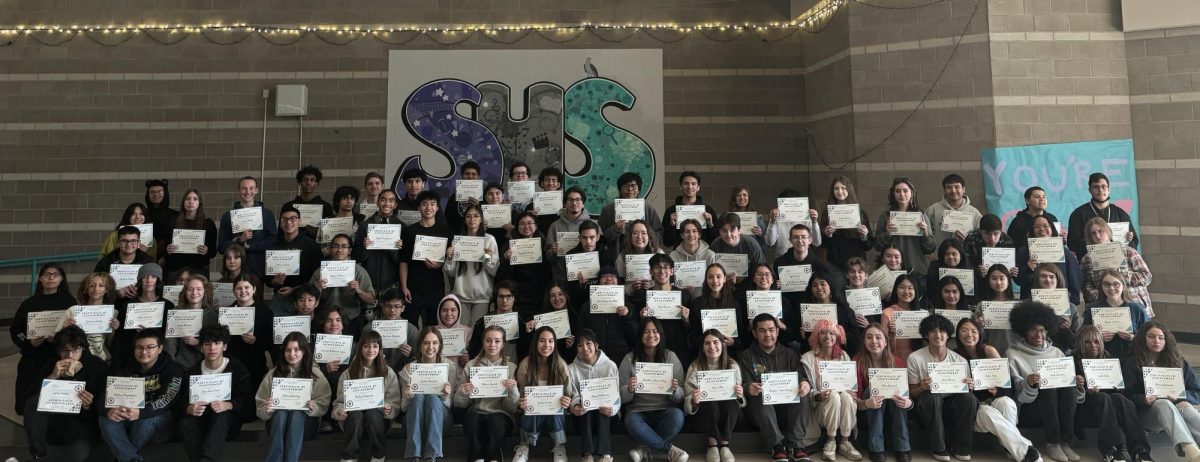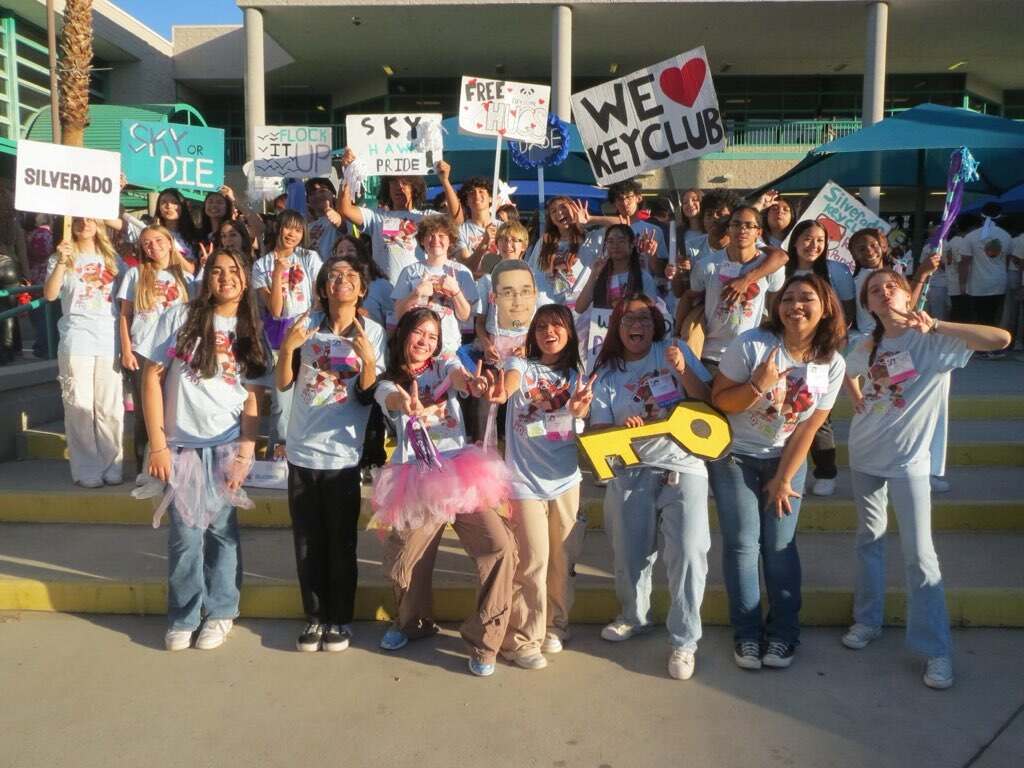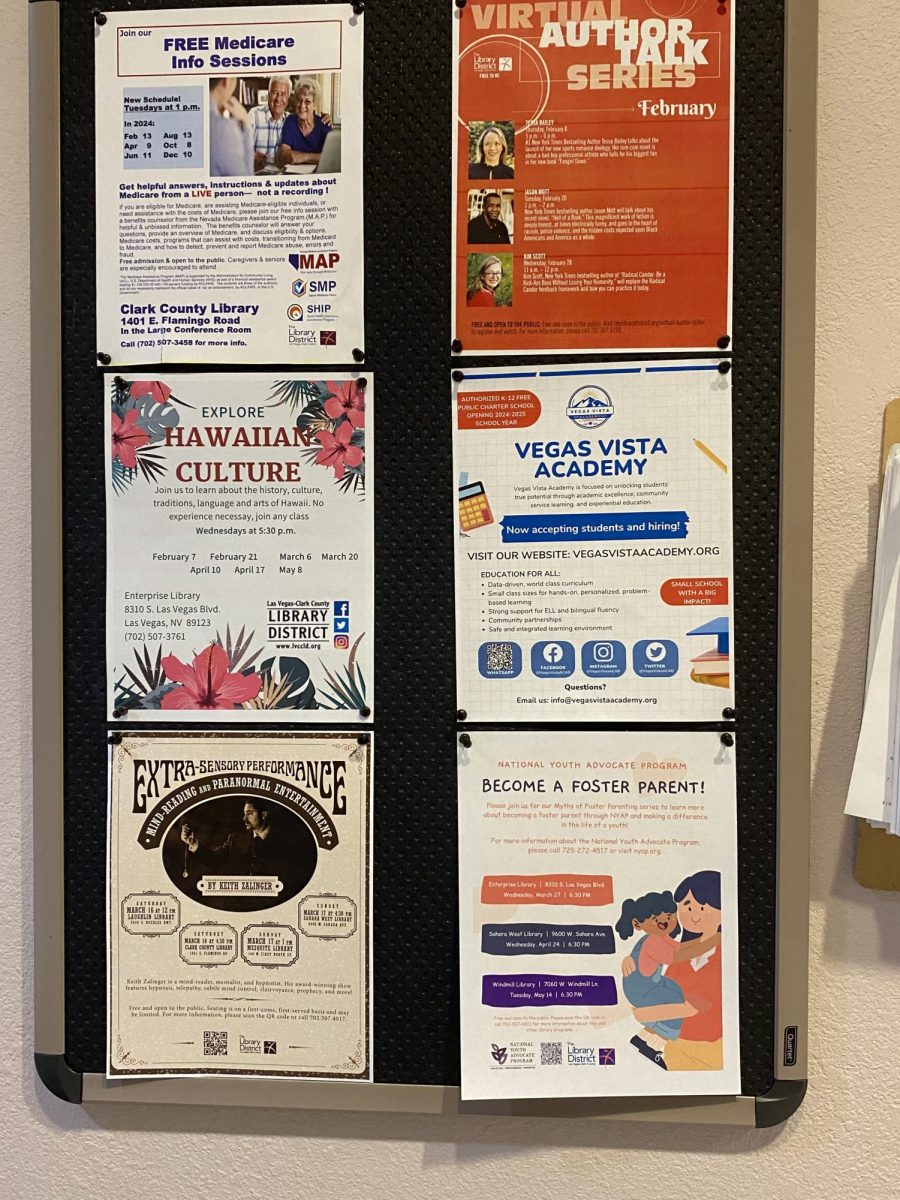Last semester, 617 Silverado students were denied a credit, meaning they failed at least one class. With a six-period schedule next school year, however, it will be harder to make up credits. Students should strive to be successful in the current semester to not fall behind on more credits and get further away from a diploma.
Showing up to school to the best of your ability is the best way to improve your grades and get credits. Having ten unexcused absences in any class will result in a denial of credit, even if you earn an A. Constantly missing instruction will also make it harder to understand topics that will ultimately lead to poor grades. If you are sick or another urgent event comes up, check Canvas and email your teachers if you don’t understand what went on that day.
The purpose of school is to learn. For some, focusing on and understanding lessons is difficult. Minimize the number of distractions in your area, like putting away your phone in your backpack or sitting away from friends who prevent you from doing work. Ask questions, either in class or through email if you’re uncomfortable talking in-person.
It is also important to figure out your style of learning (visual, auditory, read/write, kinaesthetic). A teacher reading off notes from a slideshow doesn’t work for everyone. For example, if you are a kinesthetic learner (someone who learns from a more hands-on approach), ask your teacher or a peer who understands how to turn a recent lesson into something easier to comprehend. You can also find the same lessons taught by other teachers online in order to get a different perspective on a topic.
If you want to increase your chance of getting the maximum number of points on an assignment, work on it the day it is assigned in class when the topic will be freshest in your mind. The current 46-minute class periods don’t always allow time to finish assignments, so complete unfinished work in classes you have no work in, at lunch, or as homework.
Turn in all your assignments, even if it isn’t done. While completing all questions on an assignment is preferable, assignments that are about to close and aren’t fully completed should still be turned in. A teacher must grade based on what is turned in, so a 50% on something that wasn’t done will always be better than a 0. Either finish it last minute or turn in what you have late.
Summative assignments are worth 80% of your grade, and a poor score can lower a grade significantly. Most summative assignments are tests, but it can also be major projects. Study before tests by making study aids and testing yourself with potential test questions. Finding a study group or a tutor will help you focus on reviewing notes and figuring out what you don’t understand.
For summative projects, look at a rubric (ask your teacher if they can provide one). Compare your work to what is being asked for on the rubric. If you aren’t sure if something you did matches the rubric, ask your teacher or peers.
As for making up credits, Assistant Principal Bianca Lutchen has some help.
“APEX, NVLA concurrent enrollment, and summer school at different locations are all options,” Lutchen said. “There is also ESY for people who have learning disabilities and are credit deficient.”
She also has her own advice for students who are failing at least one class.
“Success is more than just grades- successful students can reflect and are active in the learning process,” she said. “Make a list of everything you need to do. Then, look at what you understand and don’t understand. It doesn’t make sense to do everything at once, so make a plan of how to get things done.”
While it may be discouraging to see you are off-track to graduate or aren’t passing a class, that doesn’t mean you should give up. Getting a diploma should be your goal, and there are many people willing to help you achieve that. As long as you put effort into your work, you will be successful in school.






